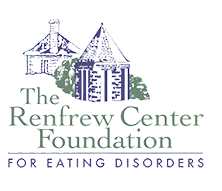Recently I stumbled across the film Nocturnal Animals. A horrifying psychological drama about how the values we inherit shape our lives. When the film ended, I was left thinking about my own life. I kept replaying a short, provocative conversation between a perfectly made up and impeccably coiffed mother, played by Laura Linney and her idealistic daughter.
Over a martini lunch at an upscale restaurant, Linney warns Amy Adams, her newly engaged daughter not to marry the man she loves.
“He is just a writer, not very talented and will undoubtedly come to nothing much,” mother warns daughter. “In a few short years you will tire of him and break his heart.”
Amy Adams is enraged. “I’m not you, mom,” she tells her mother. “I am me and I want something different for my life—I don’t want the life you’ve created.”
“All women,” says Linney, turning to her daughter, “turn into their mothers.”
The daughter protests, insisting she shares none of her mother’s shallow, materialistic values.
Dryly, Linney warns her, “Just you wait.”
As the film unfolds the mother turns out to be correct: within a few short years, Amy Adams abandons her writer-husband in search of a more up-scale life and creates unimaginable chaos in both their lives,
As I thought about this compelling film, I was drawn back to examining my own relationship with my mother. As a young woman growing up, I expected my life to unfold totally different from hers, yet, now she is gone and I realize just how much of my mother’s essence I have absorbed.
What about you?
Do you ever notice — or fear you are turning into your mother even though you may have been determined to carve out your own identity?
If so, the key here is to recognize that our primary caregivers create a strong influence on us, and if your mom was your primary caregiver, there may be some parts of her you mimic, like it or not. But the good news is, with self-reflection you open the possibility of change.
Take a moment and think about the parts of your mother you emulate and would like to embrace. Now think about the parts or her you would like to avoid replicating. Remember to be compassionate to yourself—and your mother, who may have bequeathed you her strengths, her frailties and some of each.
Here are some statements that can help you in your self-assessment. I hope some of these lines bring a smile to your face:
- When I least expect it, I hear my mother’s tone of voice come out of my mouth when I talk to my children, my husband, my friends.
- I realize I handle money — frugally or over-spend — like my mother.
- I realize I send my children helpful e-mails just like my mother loved to send me newspaper clippings.
- I recognize I dress like my mother.
- I recognize that like my mother, I can’t help but give opinions even when I know I am annoying family or friends.
- Your attitude about others’ table manners resembles your mother’s views
- You complain about your partner the way your mother complained about her partner.
- Your attitudes about food, weight and exercise resemble your mom’s attitudes
Don’t panic if you realize you have picked up more than you realize from your mom. You may want to congratulate her for the strengths you inherited. And if you are panicked by some of what you have learned: the first step in changing anything is recognizing what is—and making a commitment to change. If this article prompted any important reflections for you— write me!






